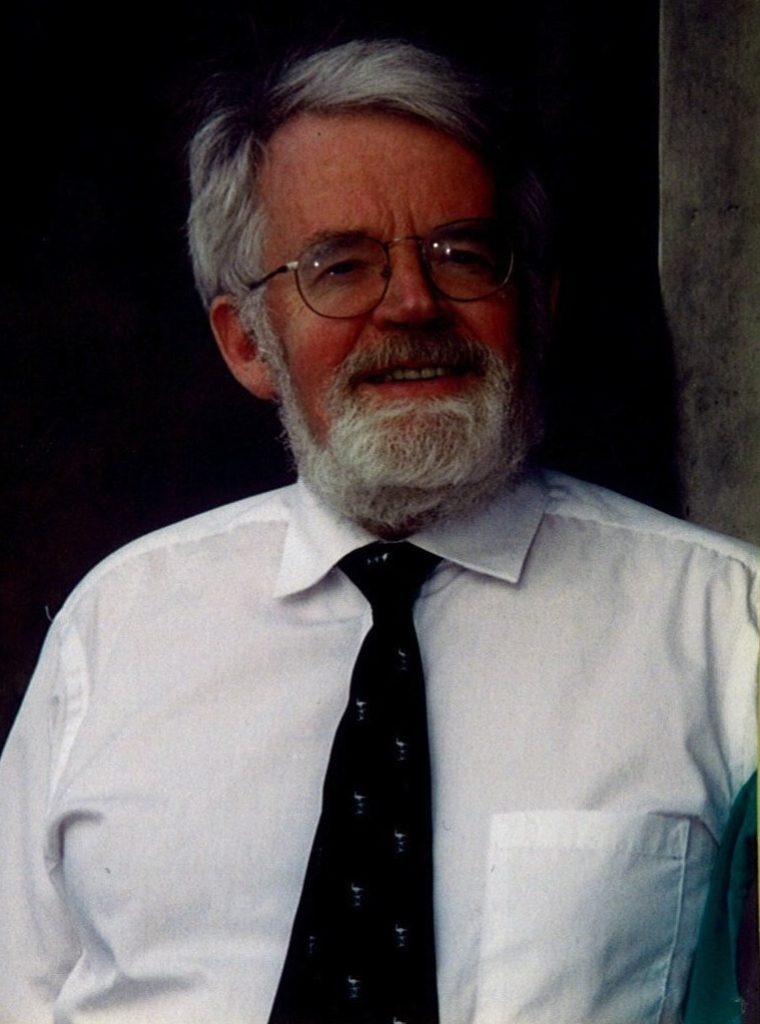Jonathan Bennett (1930–2024)
Jonathan Bennett, professor emeritus of philosophy at Syracuse University, well-known for his work on early modern philosophy, has died.

Professor Bennett wrote widely on philosophical issues, including philosophy of language, philosophy of mind, logic, and ethics. He is especially well-known for his work interpreting and translating early modern philosophical texts. He has written five books on the subject, including Kant’s Analytic (1966), Locke, Berkeley, Hume: Central Themes (1971), Kant’s Dialectic (1974), A Study of Spinoza’s Ethics (1984), and Learning from Six Philosophers (2001). His website, Early Modern Texts, strives to make canonical texts from the early modern period accessible to students. You can read more about his writings here.
Professor Bennett was on the faculty at Syracuse University from 1970 until he retired in 1997. Prior to this, he held positions at the University of British Columbia, Simon Fraser University, Cambridge University, and Haverford College. He received his LittD from the University of Cambridge in 1991, his MA from the University of Canterbury in 1953, and his BPhil from the University of Oxford in 1955. Professor Bennett was elected a Fellow of the American Academy of Arts and Sciences in 1985 and a Fellow of the British Academy in 1991.
He died on March 31st through Canada’s Medical Assistance in Dying program, according to an announcement at Early Modern Texts.
Correction: the original post misstated the year Bennett joined the faculty at Syracuse.


It is noteworthy that Jonathan Bennett’s wife, Gillian, also undertook a medically assisted death and created a website about it: https://deadatnoon.com/ There is also a video about it, featuring Jonathan, here: https://www.youtube.com/watch?v=T524oCAHV1A&t=18s Some might find the video emotionally upsetting.
Gillian didn’t die through MAID. She died by her own hand. In the website you have mentioned she has written that although Jonathan will be present during her suicide he will in no way assist her since it would be illegal.
Thank you. I stand corrected. (I did realize that Jonathan did not assist but I was overlooking other things.)
This is some of his most compelling work. His piece in the Vancouver Sun at the time of Gillian Bennett’s death was a truly moving and impactful piece of writing https://vancouversun.com/news/metro/assisted-suicide-memories-of-bc-woman-who-killed-herself-built-upon-the-rocks.
A truly sad loss…
(He was at Syracuse from around 1970, not 79)
JB was in my view the sharpest philosophical interlocutor amongst the Syracuse and Cornell faculty when I was a grad student in the late 80s. (We had a bunch of joint sessions as two depts both centrally isolated in New York State.). With his passing, on top of that of Adam Morton, Philosophers’ Island northwest of Vancouver may lose its informal name.
The Early Modern Texts site is really a service to the profession and to students everywhere. The translations are quite good and also approachable. (I know some people quibble with them, but for Kant at least I don’t have any more issues with them than any other translation.) They’re also free. That site is one of the things that’s helped me keep my ethics classes textbook free. I really wish someone would do the same for some texts in continental philosophy like Hegel and Nietzsche.
I concur on this. Bennett’s text of Kant has benefited my students.
I had Jonathan Bennett as a professor at UBC in 1974-1975, where he remained until 1979. It was during this period that he collaborated with Peter Remnant, also of UBC, on their translation of Leibniz’s New Essays on the Understanding (Cambridge U. Press). He was a marvelous and memorable teacher.
I posted this elsewhere but my indebtedness to him moves me to do it here as well:
I never met him, but reviewed his book on conditionals by request for a journal. It changed my intellectual life. I had always been fascinated by C L Stevenson and his emotivism, but never could have imagined that expressivism could undergird a position on logical conditionals. I went from being a rather simplistic truth realist to a thoroughgoing pragmatist across many years first impressed by his book to see that even truth-functional logic itself is not immune to criticism. Very few books have had such an influence on my mind. Belatedly I must give him great credit for that.